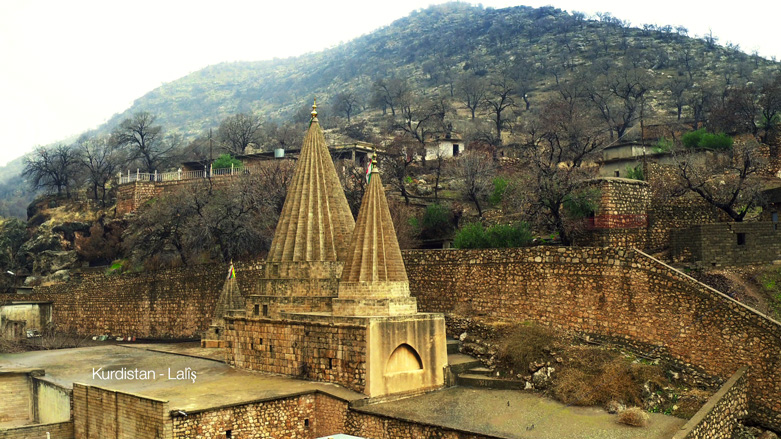Yezidis set to decide on Mir Tahseen Beg's successor

ERBIL (Kurdistan 24) – Two months after the death of Mir (Prince) Tahseen Saeed Beg, Yezidis (Ezidis) are set to choose a new leader for the community with six candidates from the Beg family in contention for the post.
The late Beg passed away at the age of 86 on Jan. 28 in the German city of Hanover after a lengthy battle with illness. His body was repatriated to the Kurdistan Region on Feb. 4.
Mir Tahseen Beg had been the leader of Ezidis around the world since 1944, following the death of his father. He was also the head of the Ezidi Supreme Spiritual Council.
According to the Ezidi community’s tradition, the leader should be from the Beg family, and the family should agree among themselves on a sole candidate.
There are currently six candidates for the post, all of them from the Beg family: Harman Mirza Beg (nephew), Hazim Mir Tahseen Beg (son), Kamiran Kheri Beg (nephew), Miran Sabah Jasim Beg (son of a cousin), Salim Najman Beg (cousin), and Sherzad Farouq Beg (brother).
“We continuously meet among ourselves to agree on one candidate to be the new Prince and serve the Ezidi people,” Hazim told Kurdistan 24 on Wednesday.
No date or timeline has been set to choose the new Ezidi leader.
There are about one million Ezidis worldwide, with almost half of them living in Iraq and the autonomous Kurdistan Region.
The emergence of the Islamic State and its violent assault on Sinjar (Shingal) in 2014 led to the displacement of hundreds of thousands of Ezidis. Most of them fled to the Kurdistan Region, while others resettled in neighboring countries in the region or Western states.
Others were not as lucky and remained stranded in the war zone, where they experienced atrocities and mass executions at the hands of the extremist group for years. Militants subjected women and girls to sexual slavery, kidnapped children, forced religious conversions, executed scores of men, and abused, sold, and trafficked women across areas they controlled in Iraq and Syria.
Before the 2014 attack, there were roughly 550,000 Ezidis in the Kurdistan Region and Iraq. As the militants took over large swaths of territory in Nineveh province, 360,000 Ezidis escaped and found refuge elsewhere, according to the Kurdistan Regional Government’s (KRG) Ezidi Rescue Office.
So far, over 69 mass graves which contain the remains of Ezidis have been excavated along with untold numbers of individual graves.
Kurdish and Ezidi Peshmerga forces, with the support of the US-led coalition, liberated Shingal from the Islamic State in November 2015. However, the town remains virtually vacant with little to no basic services available.
Shingal, an area disputed between Erbil and Baghdad, is currently under the control of Iraqi forces and Shia militias. These forces, plus a limited number of Peshmerga and other Kurdish fighters, are present in Shingal and its outskirts with reports of tensions between them over who will control the strategic town that lies near the Syrian border.
Editing by Karzan Sulaivany
